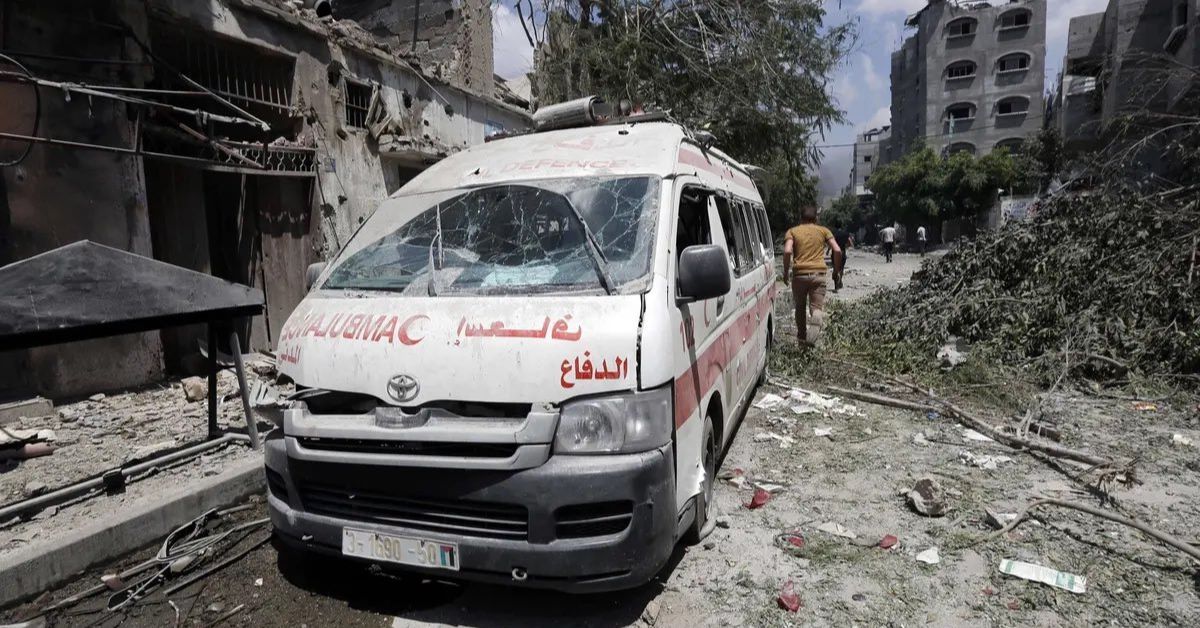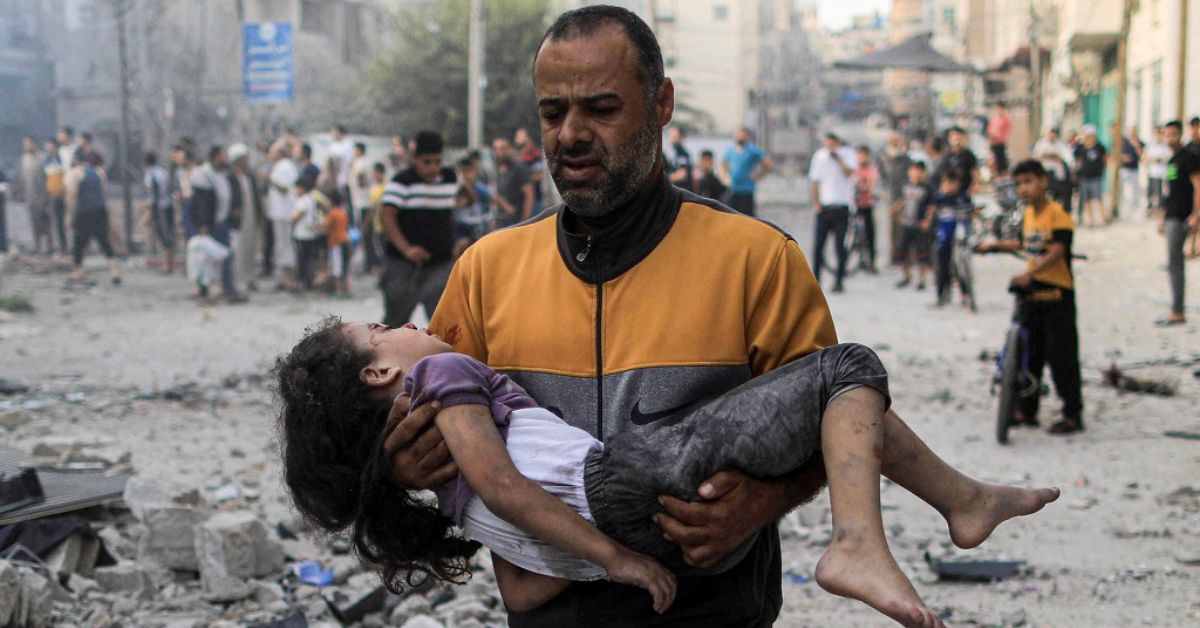BEIRUT – Over a week has passed since the Hamas attack on Israel and the subsequent Israeli response in Gaza, yet the outcome of this confrontation remains uncertain. The shockwaves, however, continue to ripple across Israel and the Arab world.
For Tel Aviv, the element of surprise was heightened by a prevailing sentiment within the Israeli government that the Palestinian “issue” had been dormant for over a decade. This perspective was bolstered by several factors.
First, Israel’s intense focus on Iran: Tehran is viewed as the primary threat, warranting the concentration of all diplomatic and military efforts. This has led to the “isolation” of the Gaza Strip, which has been under Hamas control, an Iranian ally, since 2006. This embargo, often misperceived as airtight, has fostered a false sense of security among Israelis.
Also Read Israel-Hamas conflict sparks global economic anxiety
Second, there was a prevailing belief that the Palestinian people had become passive, that their spirit has been crushed to the point where they lack the means or will to rally. Additionally, Israel’s internal preoccupation with judicial reform was so consuming that it seemingly blinded them to an escalating threat—a threat that Egyptian intelligence had warned the Israeli government about just three days prior, only to be largely dismissed.
In the Arab world, this bold move by Hamas, unprecedented in modern Palestinian history, is perceived as a reaction to years of oppression and discrimination against the Palestinian people.
At a glance * Gaza's GDP: $18 billion, Unemployment: 45%, Area: 365 km^2, Population: 2 million. * World Bank President Ajay Banga warns of the economic shock from the Israel-Gaza conflict. * Israel's GDP projected to grow by 3.3% in 2024, as per the OECD report. * The Israel-Gaza conflict impacts financial markets, causing a rise in dollar-denominated assets. * Lebanon's economic crisis deepens, with a currency devaluation over 90%. * Normalization of Israel-Saudi Arabia relations postponed. * Russia President Valadimir Putin capitalizes on the conflict, diverting attention from Ukraine. * Putin and Xi Jinping aim for the creation of a Palestinian state.
A common saying in the Middle East goes: “If it doesn’t grow, it won’t shrink.” This suggests that to truly address a problem, it sometimes needs to be confronted head-on. Did the potential for an imminent agreement between Saudi Arabia and Israel spur Hamas into such dramatic action? Did the Abraham Accords set a new standard for Hamas? Was there an urgent need to amplify the Palestinian cause ahead of another potential normalization agreement within the Arab world?
It’s now clear that Hamas meticulously prepared its plan of action in utmost secrecy since May, operating out of the Lebanese capital, Beirut. The French-language Lebanese daily, L’Orient-Le Jour, reports that in May, Hizbollah Secretary General Hassan Nasrallah met with Hamas’ second-in-command, Saleh el-Arouri, and Islamic Jihad leader Ziad Nakhala in Beirut. They finalized the details of an operation that Israel would scarcely believe, given its confidence in its military superiority in the region.
Also Read Oil prices spike as Hamas attack on Israel fuels supply fears
The goal now is to “eradicate” Hamas. Even if this objective seems unattainable, nothing prevents the Israeli army from leveling Gaza. The human and economic tolls of such an action are staggering.
Gaza at a glance
GDP: $18 billion
Unemployment rate: 45 percent
Area: 365 km^2
Population: 2 million
Neither the Palestinian Authority nor cash-strapped Iran can shoulder this cost, and the international community will also be affected. World Bank President Ajay Banga commented on Tuesday that the Israel-Gaza conflict is causing an economic shock. If it widens, it may become challenging for regional central banks to revive the Middle Eastern economies.
“This is both a humanitarian tragedy and an economic shock we don’t need,” Ajay Banga told Reuters during the annual meetings of the World Bank and the International Monetary Fund in Morocco.
Israel by the numbers
According to an OECD report, Israel’s GDP is projected to grow by 3.3 percent in 2024. High inflation will dampen private consumption growth, while moderate demand from trading partners will restrain exports. Rising interest rates will decelerate investment growth. By 2024, growth should near its potential rate as inflation subsides. This report was first published in June 2023.
Central banks “were starting to feel somewhat optimistic about a potential soft landing, but this situation only adds complexity,” remarked Ajay Banga. While the direct economic impact is less than what was seen at the onset of Russia’s invasion of Ukraine last year, the Israel-Gaza conflict doesn’t influence oil, grain, or fertilizer exports. However, it’s affecting financial markets, notably causing a surge in dollar-denominated assets.

The ramifications of this crisis could intensify exponentially if another front emerges to Israel’s north with the involvement of Lebanese Hizbollah. Lebanon, already grappling with its most severe economic crisis ever and a currency devaluation exceeding 90 percent, is struggling to persuade the IMF and international donors to consider its plight. If Hizbollah gets involved, it could be the final blow for the Cedar nation.
Diplomatically, what’s clear now is that the much-anticipated normalization of relations between Israel and Saudi Arabia has been indefinitely postponed, as highlighted in a recent New York Times article.
Russian President Vladimir Putin, on the other hand, is capitalizing on the media attention the conflict is drawing. It diverts attention from his ongoing conflict in Ukraine. If oil prices were to spike as a result, he wouldn’t be opposed. “A gift from Hamas to the Russian leader,” read a recent headline in Politico. Moreover, in alliance with Xi Jinping’s China, Putin aspires to achieve what many deem impossible: the establishment of a Palestinian state.
Gideon Levi poignantly notes in Haaretz, “Israel can’t imprison two million Gazans without facing severe repercussions.” Once again, it’s the innocent on both sides who bear the brunt of a conflict that has persisted for far too long.









